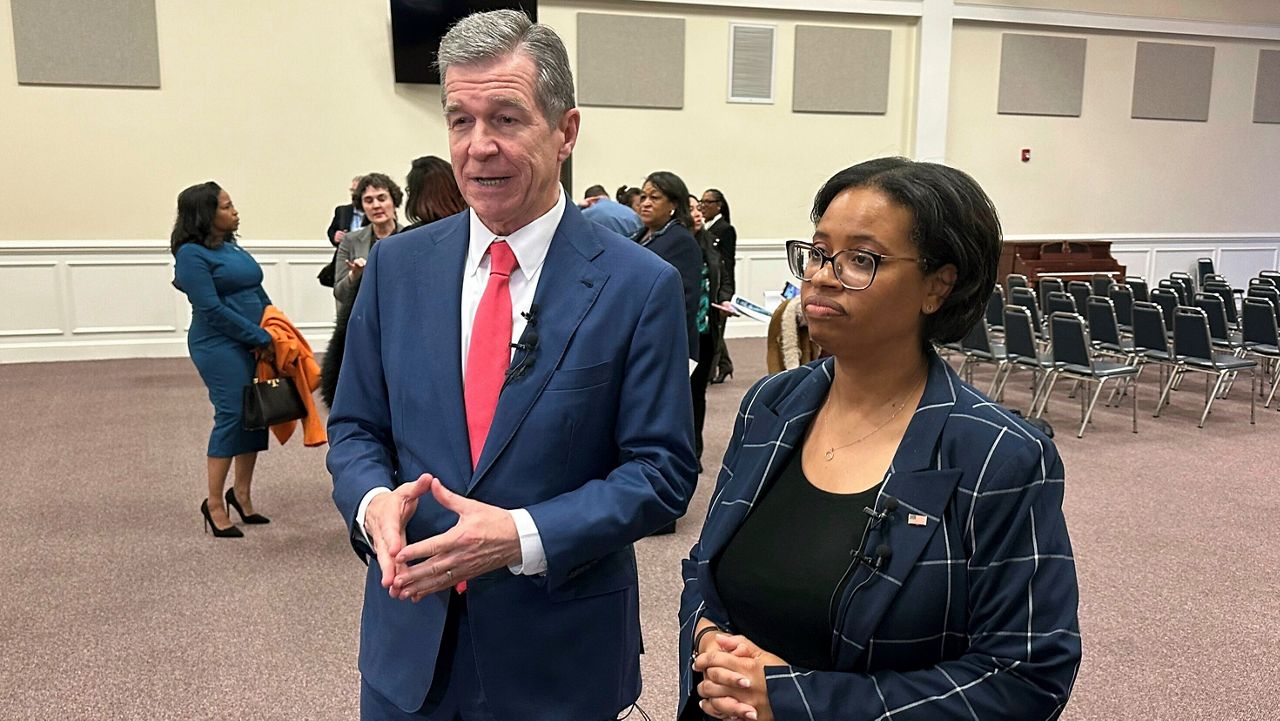RALEIGH, N.C. (AP) — North Carolina is barely a month into the start of Medicaid expansion in the state and over 310,000 low-income adults have enrolled in the government health care coverage, Gov. Roy Cooper said Wednesday while hosting the nation's chief Medicaid regulator.
The Democratic governor joined Chiquita Brooks-LaSure, administrator of the Centers for Medicare & Medicaid Services, at a Raleigh church to highlight both the coverage numbers and next week's open-enrollment deadline for people seeking other subsidized insurance offered through the Affordable Care Act.
The big health news in North Carolina has been the Dec. 1 start of Medicaid expansion coverage offered through the 2010 federal law that Cooper's administration said could ultimately help 600,000 people ages 19-64. Until recently many of those people made too much to qualify for Medicaid but struggled to afford the subsidized private plans through the online marketplace.
Cooper had sought expansion since taking office in 2017, but it wasn’t until March that the Republican-controlled legislature approved a measure that the governor signed so the state could accept such coverage.
“Our goal was simple here in North Carolina — to get people health insurance so that they can get the health care that they need. And the message is this: North Carolina Medicaid is now for more people,” Cooper said at the event at Martin Street Baptist Church.
Cooper said over 311,000 people have newly received coverage through expansion in the state. About 273,000 of them were enrolled and covered on the first day, with most automatically added because they were already receiving limited family-planning Medicaid coverage.
Others, like Patrick Dunnagan of Raleigh, who has kidney disease, switched immediately from a private marketplace plan with high premiums and out-of-pocket expenses.
“For me Medicaid expansion is all about financial freedom. We are all one diagnosis away from being unable to take care of ourselves and our families,” he told event attendees. “This is powerful, and I am so thankful.”
Dunnagan and another recipient of marketplace insurance spoke after Cooper and Brooks-LaSure met with representatives of groups associated with the North Carolina Navigator Consortium who have trained workers to help residents enroll in Medicaid and the subsidized insurance on the online marketplace. These and other health care experts have been attending local enrollment events across the state since last month.
Brooks-LaSure also said Wednesday that 20 million people nationwide — a record — have selected a plan so far on online insurance marketplaces since open enrollment started Nov. 1. CMS said in a statement that North Carolina has seen more than 996,000 plan selections during the enrollment period, which largely ends next Tuesday. The online marketplace numbers are separate from Medicaid expansion enrollments.
Brooks-LaSure praised Cooper for his work on expansion and welcomed the national enrollment figures, saying “more people will be able to enjoy the security that access to quality, affordable health care provides.”
Next week's open-enrollment deadline doesn't apply to people seeking health care through Medicaid expansion or traditional Medicaid.
Cooper, who is barred by term limits from seeking reelection this year, suggested that Medicaid expansion and other Affordable Care Act benefits could be threatened should some Republicans win in November. He pointed to Lt. Gov. Mark Robinson, who is running for governor and has said he didn't support expansion legislation, and to former President Donald Trump, who said recently that he was “seriously looking at alternatives” to the ACA should he win a second term.



